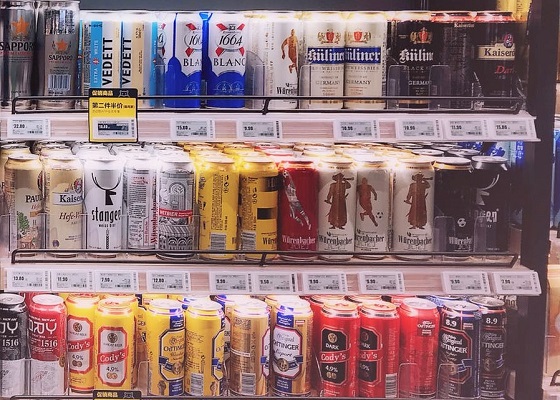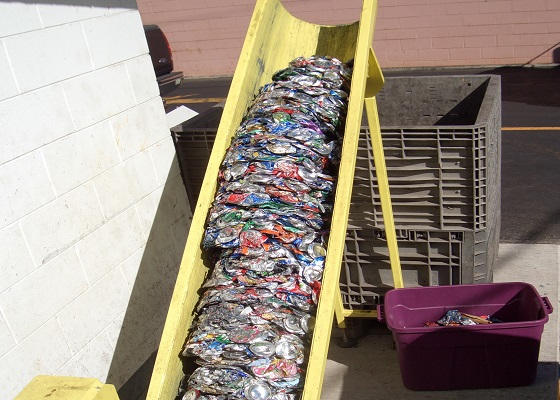Aluminium Cans Recycling Dewatering
Aluminium cans recycling uses only 5 percent of the energy and produces only 5 percent of CO₂ emissions when compared to with production of virgin metal. Therefore aluminium cans recycling is really cost-effective and environmentally friendly. Aluminium cans recycling also reduces the amount of waste going to the landfill. A recycled aluminum can save enough energy to run a television set for three hours. Recycling 1 kg of aluminum saves up 6 kg of bauxite, 4 kg of chemical products and 14 kWh of electricity.

Aluminium cans distinguish themselves as the most recycled and most recyclable beverage container in the world. An awesome 105,784 cans are recycled every minute nationwide. Aluminium is a sustainable metal and can be recycled over and over again. A can is generally turned into a new can and back on store shelves within 60 days. Cans are usually available through curbside pickup or community drop-off locations nationwide.
Aluminium cans recycling rate is better than 1 out of 2 cans. Recycling diverted 1.7 billion pounds from landfills. Every minute of every day, an average of 105,800 aluminium cans are recycled. Over the past 10 years, the number of aluminium cans recycled has doubled. Recycling aluminium creates 97% less water pollution than producing new metal from ore. Therefore aluminium cans recycling is a great and meaningful job.

Brazil recycles 98.2% of its aluminium production, equivalent to 14.7 billion beverage cans per year, ranking first in the world, more than Japan's 82.5% recovery rate. Brazil has topped the aluminium cans recycling charts eight years in a row. Aluminium cans recycling rate is nearly 80% in China.
Aluminium can be recycled with no degradation in quality, aluminium cans are the ideal product for a closed-loop approach to recycling. GREENMAX dewatering machine Poseidon series are used to compact the aluminium cans into blocks, making it convenient for further steps.
Aluminium Cans Recycling Process Steps:
1. Aluminum cans dewatering: an essential part of the recycling process, especially in preparation for further processing such as shredding and melting.
2. Shredding: The cleaned cans are shredded into small pieces, known as "aluminum shred." Shredding increases the surface area, making the aluminum easier to melt and reducing the energy required for the next step.
3. Melting: The shredded aluminum is then melted in a furnace at a recycling plant. The furnace temperature reaches around 750°C (1,382°F). During this process, any remaining impurities are removed, and the aluminum is further purified.
4. Casting: The molten aluminum is poured into molds to form large ingots or billets. These ingots or billets are then cooled and solidified. An ingot can weigh up to several tons and is the primary form used in aluminum manufacturing.
Dewatering is a vital step in the aluminum can recycling process that ensures efficiency, quality, and sustainability. By removing excess liquids, recycling facilities can reduce transportation and processing costs, and produce high-quality recycled aluminum. This step not only supports environmental conservation by reducing waste and energy consumption but also contributes to a circular economy, making aluminum one of the most sustainable materials for packaging.
